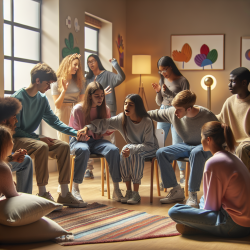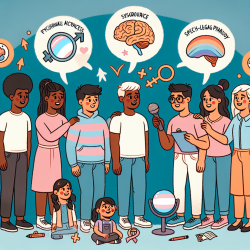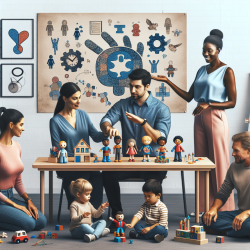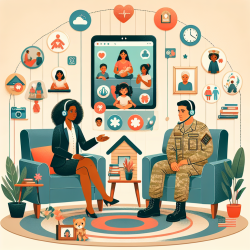In the educational setting, fostering a sense of belonging and connection among students, especially those in special education, is crucial. A recent study titled “We Copy to Join in, to Not Be Lonely”: Adolescents in Special Education Reflect on Using Dramatic Imitation in Group Dramatherapy to Enhance Relational Connection and Belonging sheds light on how dramatic imitation can be an effective tool in achieving this goal.
The study, conducted by Amanda Musicka-Williams at the University of Melbourne, explores how adolescents with intellectual and developmental disabilities use dramatic imitation in group dramatherapy to enhance their sense of belonging. The findings offer valuable insights for practitioners looking to improve their therapeutic techniques and encourage further research in this area.
Key Findings
The research reveals that adolescents often engage in “copying” or dramatic imitation as a way to:
- Play with others
- Learn from their peers
- Join in social activities
Participants expressed that this form of imitation helps them feel included and connected, which is especially important given their common experiences of social ostracism. By imitating others, they can explore new roles and behaviors in a safe and supportive environment.
Practical Applications
For practitioners, integrating dramatic imitation into group dramatherapy sessions can be highly beneficial. Here are some practical steps to consider:
- Create a Safe Space: Ensure that the therapy environment is welcoming and non-judgmental. This encourages students to freely engage in imitation without fear of criticism.
- Encourage Role Play: Use role play and improvisation to help students explore different social roles and scenarios. This can aid in developing their social skills and self-awareness.
- Facilitate Reflection: Allow time for students to reflect on their experiences and discuss what they have learned through imitation. This can deepen their understanding and enhance the therapeutic process.
Encouraging Further Research
While the findings of this study are promising, further research is needed to fully understand the impact of dramatic imitation in group dramatherapy. Practitioners are encouraged to conduct their own studies and share their results with the wider community. This collective effort can lead to more refined techniques and better outcomes for students in special education.
In conclusion, dramatic imitation in group dramatherapy offers a powerful way to enhance relational connection and belonging among adolescents in special education. By implementing these findings and continuing to explore this area, practitioners can make a significant difference in the lives of their students.
To read the original research paper, please follow this link: “We Copy to Join in, to Not Be Lonely”: Adolescents in Special Education Reflect on Using Dramatic Imitation in Group Dramatherapy to Enhance Relational Connection and Belonging.










